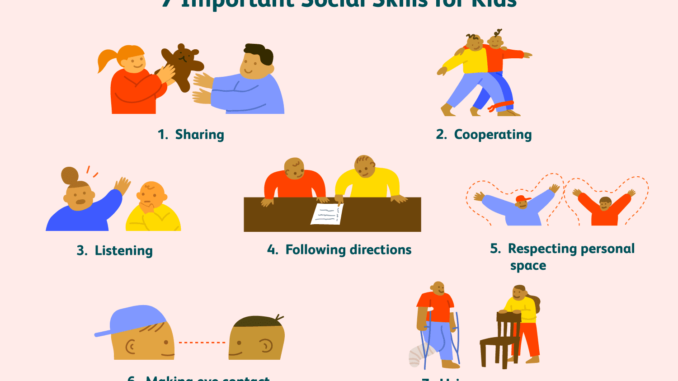
As a parent, you play a crucial role in shaping your child’s future. It is essential to teach them valuable life skills, such as manners and social etiquette, from an early age. Good manners are not just about being polite; they also contribute to your child’s personal and social development, helping them build strong relationships and succeed in their personal and professional lives. In this article, we will discuss some tips for honing your parenting skills and teaching manners to your children.
Lead by Example
Children learn by example, and the best way to teach them manners is to practice them yourself. You can’t expect your child to say “please” and “thank you” if you don’t say it yourself. Always use polite language and demonstrate good behavior in your daily interactions with your child and others. Model positive behavior, such as saying “excuse me” when interrupting someone and saying “thank you” when receiving a gift or help.
Reinforce Positive Behavior
Positive reinforcement is an effective way to encourage good behavior in children. Praise and acknowledge your child when they display good manners, such as holding the door for someone or saying “excuse me” when interrupting a conversation. Positive reinforcement encourages your child to repeat good behavior and helps them develop a sense of self-esteem and confidence.
Use Role-Playing
Role-playing is a fun and interactive way to teach manners and social skills to children. Role-playing helps your child understand different social situations and how to behave in them. For example, you can role-play scenarios such as ordering food at a restaurant, greeting guests at a party, or introducing themselves to new friends. Role-playing also helps children build empathy and understand the feelings of others.
Be Consistent
Consistency is key when teaching manners and social skills to children. Establish clear expectations and consequences for good and bad behavior. For example, if your child interrupts a conversation, remind them to say “excuse me” and wait for their turn to speak. If they continue to interrupt, give them a consequence, such as taking away a privilege. Consistency helps your child understand the importance of good behavior and reinforces positive habits.
Use Positive Language
Positive language is an effective way to communicate with children and teach them manners. Avoid using negative language or criticism, which can discourage your child and make them feel embarrassed. Instead, use positive language to encourage good behavior and reinforce positive habits. For example, instead of saying, “Stop being rude,” say, “Remember to use your polite words and ask nicely.”
Teach Table Manners
Table manners are an essential part of social etiquette and can help your child feel confident in social situations. Teach your child to set the table, use utensils correctly, and eat with their mouth closed. Encourage them to wait their turn to speak and to ask for items politely. Table manners also promote healthy eating habits and help children develop a sense of independence and responsibility.
Practice Gratitude
Teaching your child to express gratitude is an essential part of developing good manners. Encourage your child to say “please” and “thank you” when receiving gifts or help. Teach them to write thank-you notes or draw pictures to express their gratitude. Practicing gratitude helps your child develop empathy and appreciation for others and promotes positive social interactions.
In conclusion, teaching manners and social skills to children is an essential part of parenting. Honing your parenting skills and teaching manners requires patience, consistency, and positive reinforcement. Use role-playing, positive language, and gratitude to encourage good behavior and reinforce positive habits. With time and practice, your child will develop essential life skills that will help them succeed in their personal and professional lives.
Leave a Reply